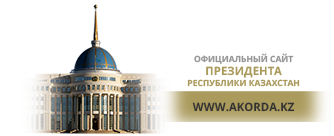Semipalatinsk Test Site: Legacy and Prospects of Scientific-Technical Potential Development Kurchatov, Republic of Kazakhstan , 07 – 09 September 2021
CONFERENCE ORGANISERS
- Ministry of Energy of the Republic of Kazakhstan
- RSE “National Nuclear Center of the Republic of Kazakhstan” including Branches:
- “Institute of Radiation Safety and Ecology”
- “Institute of Atomic Energy”
- “Institute of Geophysical Researches”
- JSC NAC “Kazatomprom”
- RSE “Institute of Nuclear Physics”
- JSC “Park of Nuclear Technologies”
- Kazakh Physical Society
- Association “Nuclear Society of Kazakhstan”
ORGANIZING COMMITTEE
Chairman: Erlan Gadletovich Batyrbekov – Director General of RSE NNC RK Deputy Chairman: V.A. Vityuk – Deputy Director General on Science of RSE NNC RK Organizing Committee Members: S.A. Berezin – Deputy Director General of RSE NNC RK, Senior Manager of IGR Branch of RSE NNC RK B.K. Karakozov – Director General of RSE INP A.N. Borisenko – Chairman of Board JSC “Park of Nuclear Technologies” I.L. Tazhibayeva – Chairman of Board Association “Nuclear Society of Kazakhstan” S.S. Lokshtanov – Chief Engineer of RSE NNC RK V.V.Baklanov – First Deputy Director of IAE Branch of RSE NNC RK A.O.Aidarkhanov – Director of IRSE Branch of RSE NNC RK N.N.Mikhailova – Deputy Director of IGR Branch of NNC RK M.K.Mukusheva – Director of RSE NNC RK Division in Nur-Sultan L.A.Yerygina – Scientific Secretary of IAE Branch of RSE NNC RK N.V.Larionova – Scientific Secretary of IRSE Branch of RSE NNC RK N.O.Utenkova – Head of Department of Scientific and Analytical Information and International Cooperation of RSE NNC RKINTERNATIONAL ADVISORY BOARD
N.A.Nogayev (Kazakhstan)
K.B.Rakhimov (Kazakhstan)
A.A.Garibov (Azerbaijan)
Yu.G. Dragunov (Russia)
Yu.V. Dubasov (Russia)
T.M. Zhantikin (Kazakhstan)
P.A. Zaitsev (Russia)
B.M. Ibrayev (Kazakhstan)
K.K. Kadyrzhanov (Kazakhstan)
T.A. Kozhamkulov (Kazakhstan)
A.I. Kiyevitskaya (Belarus)
F. Rakhimi (Tajikistan)
T.S.Ramazanov (Kazakhstan)
N.N. Spasskiy (Russia)
Sh.T.Tukhvatulin (Russia)
Yu.S.Cherepnin (Russia)
M.B.Sharipov (Kazakhstan)
V.S.Shkolnik (Kazakhstan)
B.S.Yuldashev (Uzbekistan)
K. Akehashi (Japan)
B. Bigot (ITER)
I. M. Bolshinsky (USA)
H. Florou (Greece)
H. Usui (Japan)
S. Hecker (USA)
X. Hou (Denmark)
J. Hulka (Czech Republic)
T. Kodama (Japan)
М. Мerola (France)
S. Mykkeltveit (Norway)
K. Mackey (USA)
G. Proehl (Germany)
P. Stohr (France)
B. Salbu (Norway)
T. Taiwo (USA)
W. Wieleba (Poland)
CONFERENCE VENUE
The Conference will be held in Kurchatov, East-Kazakhstan Region of the Republic of Kazakhstan, at the premises of the Republican State Enterprise “National Nuclear Center of the Republic of Kazakhstan”. The Conference program will include tours to the sites of Semipalatinsk Test Site (STS) “Experimental Field” and “Atomic Lake”, experimental complexes (research reactors IGR and IVG.1M, Kazakhstan’s Material Testing Tokamak KTM, etc.), museum of STS history. The Conference will be held offline or online.WORKING LANGUAGES OF CONFERENCE
Working languages of the Conference is Kazakh, Russian and English.THEME OF CONFERENCE
1. CURRENT TRENDS AND PROSPECTS OF NUCLEAR POWER DEVELOPMENT
- Nuclear research facilities
- Nuclear power safety
- Radiation material science and solid state physics, advanced functional energy materials
- SNF and RW management
2. CONTROLLED THERMONUCLEAR FUSION TECHNOLOGIES
- Controlled thermonuclear fusion facilities
- Plasma-physics research
- Structural and functional materials of TNR
- Physical and technical and engineering aspects of CTF
3. RADIATION ECOLOGY AND MEDICINE
- Comprehensive solution of the issues relating to the former Semipalatinsk Test Site
- Radioecology studies and risk assessment for human and ecosystem
- Monitoring of the former test sites and other radiation hazardous objects
- Remediation of territories exposed to technogenic radioactive contamination
- New approaches in solving of scientific and applied tasks of radioecology
- Nuclear and radiation technologies in industry and medicine
4. STRENGTHENING THE NUCLEAR NONPROLIFERATION REGIME
- Elimination of infrastructure and consequences of nuclear weapon tests
- Support and strengthening the nuclear nonproliferation regime, minimizing the use of highly enriched uranium in civil sector
- Monitoring of nuclear tests and their consequences by geophysical methods









